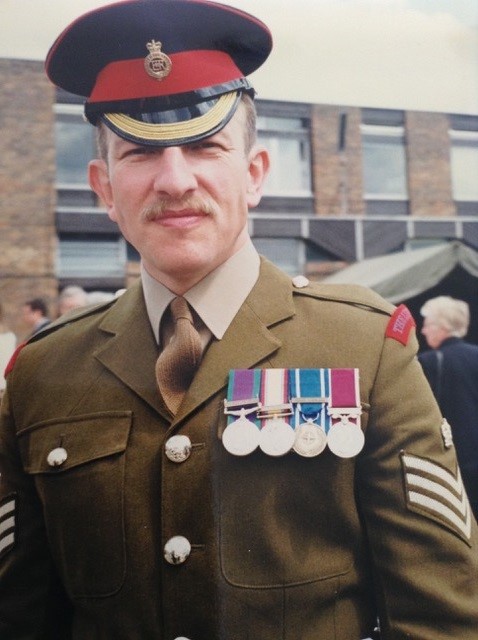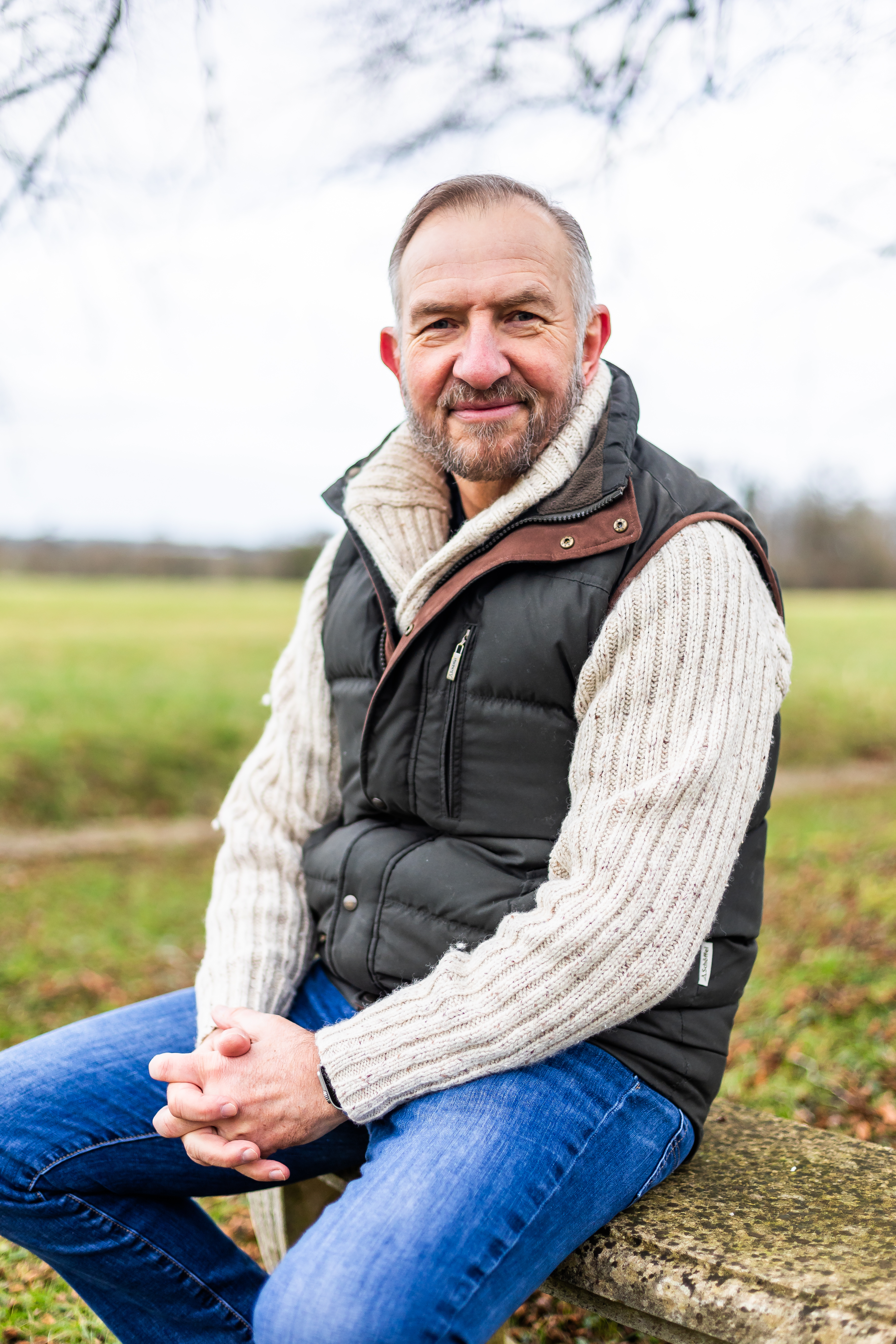Andy's Story
“I can't take away the fact that I've been into combat, but Combat Stress has given me the tools to deal with it.”

“I was very naïve when I first joined and whilst enthusiastic, I had no idea what to expect at all. My enthusiasm certainly stood me in good stead and I know the Army is where I started to learn all about real life. It was an eye opener getting used to the different cultures, regime and the hierarchy.
“The best and worst part of life in the Army was the operational side. I'm not a ceremonial soldier, and I'd much rather be out doing what soldiers do. The operational side was where I excelled, which is probably why I enjoyed it. Conversely, some of the operations would be the catalyst for why I needed Combat Stress’ help.
“I'd always wanted to do what I consider to be proper soldiering. So, in 1981 I volunteered for a tour of Northern Ireland when I had only been in the regiment a year, which was my first taste of that side of things. Over the next few years, I was promoted a number of times, as well as getting married and starting a family.
“I think my moral injury started in Iraq. In February 1991 I went to Iraq as a newly qualified tank commander and was in a squadron which went into action. I had a very young crew, and I was only 29 myself. Some of the missions we went on weren’t pleasant and tested my moral compass somewhat, but you’re trained to ensure the mission comes above all else and must not fail at any cost. You don’t want to let anyone down and that’s a lot of pressure, with barely any sleep.
“It was a charged environment and you're a different person - that's what I found difficult to deal with. There was the person I was in the turret of the tank doing the job, and then the person who later had to come home to their family. I found that difficult to deal with because I couldn't relay what I'd done in too much detail to my wife.
“There was no decompression - now you get offered counselling, but back then there was nothing at all. You were expected to just have a couple of weeks leave and deal with it yourself. Normal soldiering was hard because it would be mundane after what you’d just done, then add having to jump back into the dad and husband role - it was tough. I was reunited with my family on April Fool’s Day 1991, and we’d had no contact apart from blueys for three months because there were no mobile phones back then. It was an emotional reunion, and really tough for my wife because she was a young mum with two young children.
“The other catalyst for my help from Combat Stress was my time in Bosnia in 1996 as a guided weapons troop Sergeant. We weren’t there for peacekeeping, but as part of an implementation force, which meant keeping apart two warring factions who had a completely different political agenda, in the same region. When they clashed, the aftermath of what they did to each other was just horrendous to witness, and I was only 33 at the time so fairly young.
“It was a freezing cold Bosnian winter, and we were tasked to provide overwatch in support of a village that had been ethnically cleansed, located on the Bosnian/Croatian border. As a result the people had been displaced. There was a young lad of no more than eight – similar in age to my daughter at the time - who was malnourished, had bags under his eyes and was freezing. All he had on was a ragtag little woollen jumper which was obviously knitted for him, no socks and mis-matched wellington boots on the wrong feet. There was no family to be seen. We were in an old shoe factory right at the end of the village and he used to come to us. I think he was just trying to find somewhere to be safe.
“We spent a couple of weeks trying to befriend him. He was very stand-offish, and it took us a long while to gain his trust – I don't want to know the things he’d seen but they must’ve been terrifying. Eventually we managed to feed him and give him some hot drinks, and we got close enough to clothe him, give him socks and keep him warm.
“But then the time came when we’d done the job we needed to do in Bosnia, and we had to leave. So, I had to leave him there. Mentally I found it really hard justifying leaving him in that situation as I felt a moral responsibility.
“After Bosnia I did another six years in the Army and left in 2002 as I’d done my 22 years. It was a long time afterwards – about 15 years later - that I started to experience mental health problems. Luckily after leaving the Army, I fell into jobs that didn’t require me to revert to my previous guise in any way shape or form. Then in 2013 I took a role as a Security Consultant for the NHS. My primary role was to protect staff from violence and aggression.

“I cooked a family lunch one day and had lost the plot a bit, when my son said: “Dad how on earth are you not in prison if you act like this?”. It was affecting their life directly which wasn't fair, and that was one of the reasons which helped me make the decision to seek treatment.
“My moods were also affecting my working life. With my permission my manager contacted occupational health who signposted me to NHS help, and then referred me to Combat Stress in late 2020.
“Initially I was reluctant to start treatment with Combat Stress. I was part of a trial for veterans with moral injury, and I wanted certain questions answered in the first session before I'd give the green light for anymore. But by the time we got to the end of the first session, all my fears were put to one side. My clinician is an expert in her field, and she deconstructed my narrative and rebuilt it up in a way that made it easier for me process. It was all very empathetic, extremely professional and very mindful of my feelings. I really felt she was trying to do all she could to help.
“Now after treatment, my life is the other end of the scale. I do lose my temper occasionally, but it’s the normal everyday stuff and the triggers aren't there anymore. More importantly for me is the fact that I can read how my family are reacting to me now. I can read their body language, their nonverbal communication, which I couldn't do before.
“I don't know what would have happened if I hadn't got the help from Combat Stress - I'm glad I did. I didn't want to do it because it felt like a weakness and it was a tough decision to make, but I had to make it for my family.
“I can't take away the fact that I've been into combat and carried out missions which weren't pleasant, and I've seen things which normal human beings really shouldn't see. But Combat Stress has given me the tools to deal with that. To other veterans I’d say there will be a light at the end of the tunnel. It might be a very, very dark tunnel initially, but that light at the end of it does get brighter."
December 2023
